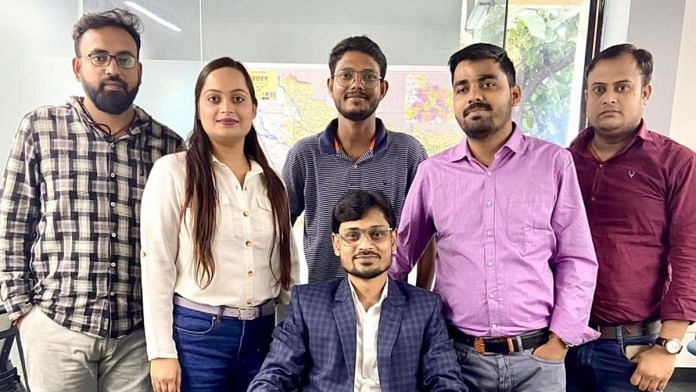Phones are ringing. Apps are pinging. Laptops are whirring away. But Dilkhush Kumar’s attention is on the dashboard as he monitors his rideshare realm in the heart of Patna. He is the start-up king of Bihar, and has founded a small town-friendly Uber-like experience. Seven years ago, the 29-year-old was pulling a rickshaw in Delhi and selling vegetables in Patna. Today, he employs graduates from IIT and IIM, and is the founder and CEO of the app-based start-up, RodBez.
The name ‘RodBez’ is Kumar’s clever, self-reflexive take on the ‘Bihari’ pronunciation of the word ‘roadways.’ Call it an inside joke, but it’s ‘hard relate’ for riders too.
Kumar is no greenhorn in the start-up ecosystem. RodBez is his second venture in seven years. It takes a leaf out of the playbook of big guns like Uber and Ola, but with a distinctive rural twist. Customers are lured by RodBez’s sweet spot: one-way fares.
People who hire taxis for longer routes have to shell out extra money for the return-trip as well. But Kumar’s RodBez is marketed as a ‘one-way taxi, taxipool and carpool platform’.
“We are connecting the village to city and city to village,” he says, sipping tea on a sofa in his office in Patna’s Saguna Mor.
“Our revolution is on the way,” Kumar says, which also happens to be the tagline of RodBez. He wants to expand his ‘kingdom’ to villages across India–from Kashmir to Kerala.
But there’s a lot riding on RodBez, which he launched in May 2022 with his cousin, Siddharth. He has invested his life savings in the start-up and relied on the largesse of “well-wishers”.
“Risk se ishq hai (I love taking risks),” he says with a grin.
In the past four months, over 50,000 people have downloaded RodBez, which has a three-star rating on Google’s Play Store. Kumar claims that one lakh customers have used the service so far.
“A poor child has to struggle a lot to survive. One thing we learn quickly is that respect is not for the person but for the money. The world worships the one who has wealth,” Kumar says.
A giant poster of Ratan Tata hangs in the corridor of his office to inspire his team to dream big.
Also read: Silicon Valley’s honeymoon with wealth is ending. Employees are packing bags
Building a start-up? Hire the right talent
In a rented 20 by 16-foot office space in Patna, 15 employees—men and women dressed in formal clothes—are busy attending calls from customers. Everyone has a laptop and a smartphone. For now, demand outweighs supply.
“We receive hundreds of calls on a daily basis, but we are unable to provide our services to everyone,” says Amity College graduate Abhilasha,23, between calls.
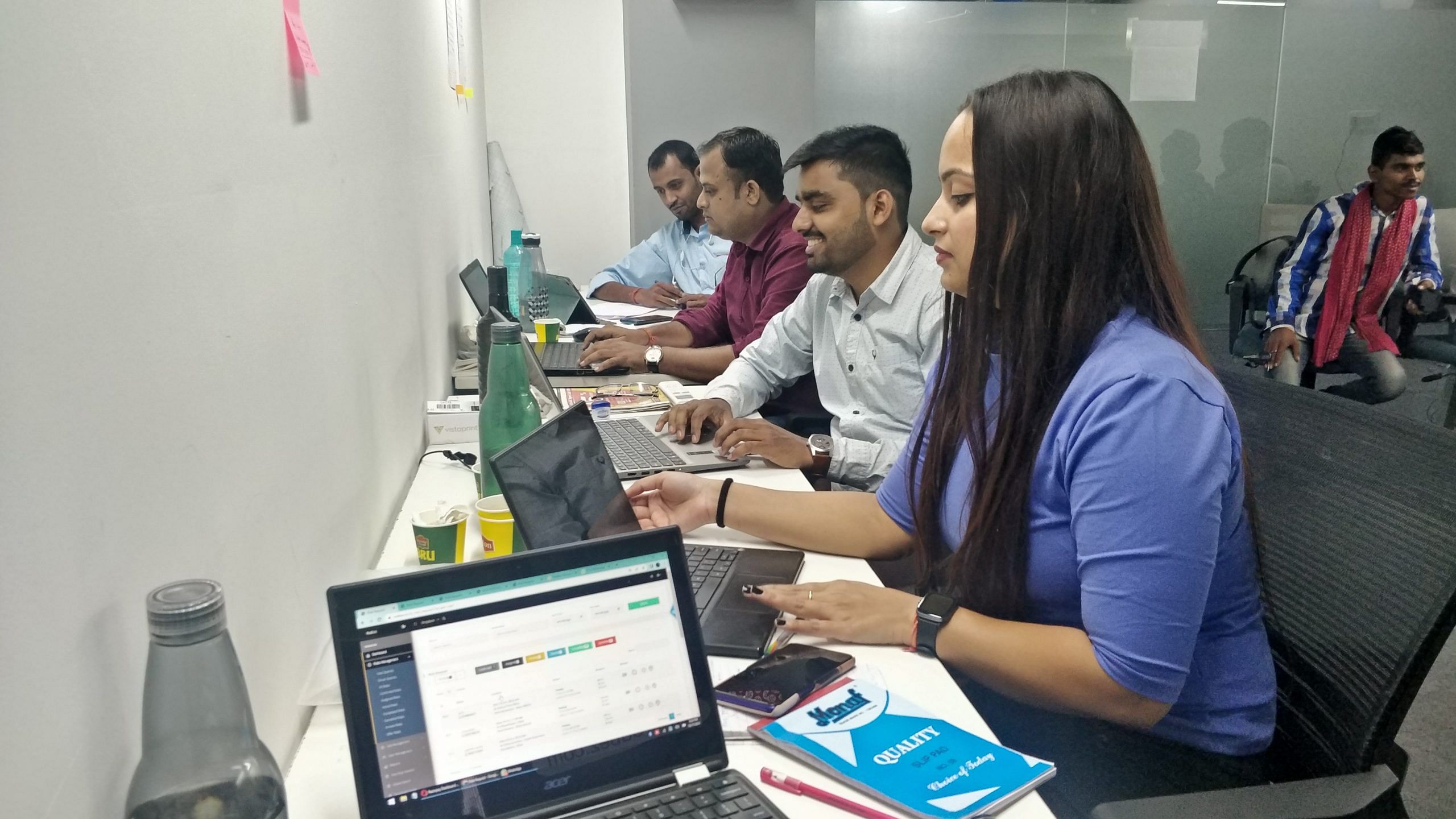
Almost all the people Kumar has hired are graduates of India’s top colleges including IIMs (Indian Institutes of Management) and IITs (Indian Institutes of Technology). The fact that they are from Bihar and prefer to work there helps. Most earn anywhere between Rs 40,000-50,000 a month. Kumar wants to pay them more as the company grows.
“Prime Minister (Narendra) Modi said that even people with slippers will board the plane. With our start-up, every person in Bihar will definitely get into a car,” says another young employee, Yashwant, who is 24-year-old and he graduated from IIIT-Bhubaneswar in 2021.
Dilkhush Kumar claims that even IIT-Mandi hailed his start up for its “unique model”, and invited RodBez for a placement drive. “But we hired from IIT-Guwahati. This is not a small thing for us. IITs sending invitations to a three-month-old organisation is a big validation,” Kumar says.
He enjoys the “fresh energy” his team brings to his start-up. He points to his dashboard, which shows that 37 people want to book a taxi on RodBez every half an hour. “This data is not small,” he says. In the evening, user traffic peaks from anywhere between 150-700 ride requests every hour.
“In the last two to three years, the start-up ecosystem has changed in Bihar. Dilkhush sir’s vision is totally different so I joined him,” says Suraj Kumar,22, an IIT-Guwahati graduate who is the chief product manager at RodBez.
Kumar is excited that RodBez is reaching out to a swathe of India that most start-ups have ignored. It doesn’t bother him that he is a “high-school pass”. Ego has no role to play when it comes to hiring talent. He has the vision.
Many entrepreneurs and funders, who can trace their roots to Bihar, are helping Kumar because he is building a company in their home state, not in Bengaluru or Gurugram.
Technology developer Nirbhaya, who runs his own company in Delhi, contacted Dilkhush Kumar when he started RodBez. Nirbhaya’s family is from Supaul in Bihar and he wanted to do something for his state. He helped Kumar develop the algorithm and app for RodBez without charging a fee, devoting five hours to it every day.
Nirbhaya isn’t the only one to believe in the potential of RodBez. Kumar’s cousin Siddharth Shankar Jha left his government job with the National Green Tribunal, Kolkata, and returned to Patna to team up with Kumar. He is the co-founder of RodBez.
Arvind Jha, senior vice-president of Newgen Software who also runs Mithila Angel Network, is one of the “well-wishers”. An IIT-Kharagpur alumni, Jha, according to Kumar, invested Rs 30 lakh in RodBez and plays mentor when required. Ajay Jha, who lives in Colorado, has taken on the mantle of a mentor, and reportedly plans to invest in the start-up later this year.
“Dilkhush’s idea is interesting because customers are conscious of travel pricing. He has a knowledge of the ground reality and business, and he is capable of doing some great work,” says Arvind, whose angel network provides mentorship and financial aid.
Dilkhush Kumar is confident that RodBez will be valued at Rs 3 crore by the first quarter of the 2022-23 financial year.
Also read: Indian start-ups delusional about their economic aspects? Need of a research oriented ecosystem
A driver’s son
Driving is in Dilkhush Kumar’s blood. His father, Pawan Khan, drove a bus in Bihar’s Saharsa for more than 30 years, but wanted his son to study and get an office job with a tie and all the trappings of respectability. He didn’t want his son to do “motor ki naukri”. “I used to tell Dilkhush not to learn to drive, but he didn’t listen to me,” says Pawan.
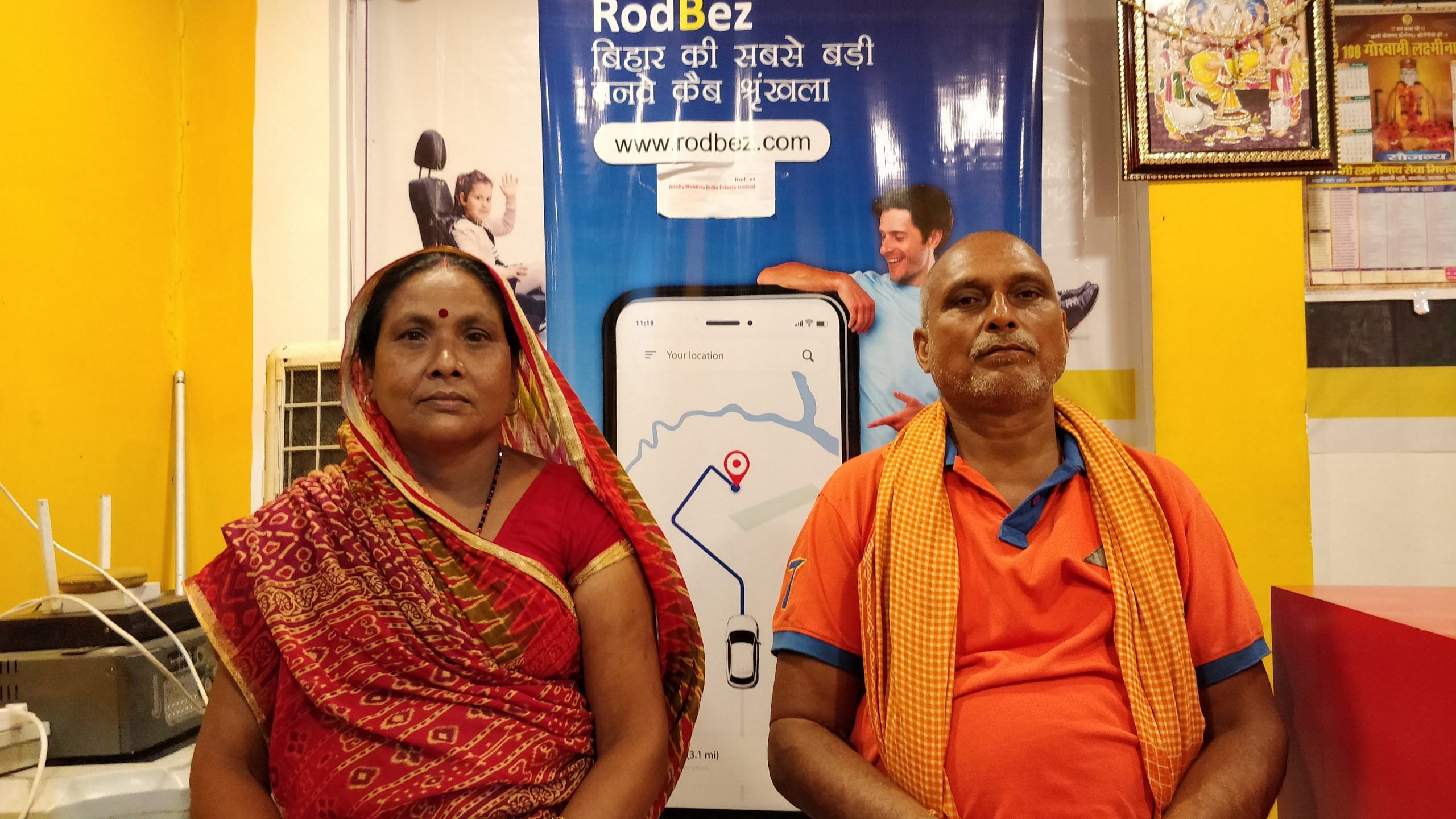
But for a young Dilkhush, the car was a symbol of freedom, a ticket to anywhere. And the roads held the promise of a life beyond his village Bangaon in Saharsa district.
Even as a child, he wanted a pair of wheels. “We were not in a position to buy him a bicycle. So, we borrowed some money from neighbours and bought him one,” says his mother, Soni Devi. Kumar was barely eight years old at the time.
As a young adult, Dilkhush took up a “motor ki naukri” in Patna. He joined a household as chauffeur for Rs 3,500 a month. But he was young and restless, and decided to ‘set up his own business’ delivering vegetables to people’s doorsteps. It lasted barely a year, and by 2015, he was back to being a chauffeur. Unable to shrug off the urge to do something more, Kumar quit that job.
“When I left the job, the car owner said to me, ‘Let’s see how soon you will become a millionaire’.” Until that moment, 20-year-old Dilkhush had never articulated the idea of becoming a millionaire. But the man’s comment stuck with him like a burr. With the help of a family friend, he set up a photocopying shop in Patna, which he ran for a while before shutting it down.
By 2016, Kumar decided to set up a ride-share business like Ola and Uber. As the son of a bus driver, he saw how the job affected his father. And drivers in Bihar weren’t being paid well. He wanted to see if he could offer them something better.
That is how Arya Go, Kumar’s first start-up, was born.
Also read: India’s start-ups are on fire, but unicorns can’t automatically spur growth
Journey to RodBez
Dilkhush Kumar launched Arya Go with just one car, a second-hand Nano, which he bought by borrowing Rs 50,000. He set up his office in a shelter house for cows in his village Bangaon. He then expanded by adding a Santro to his fleet.
“When I started in 2016, people didn’t even know the ‘S’ of start-up, especially in Saharsa,” he says, adding that he faced derision and ridicule from villagers when he tried to market his taxi service to them.
“Apart from Patna, no one knew the concept of a cab,” he says. The first three years were a challenge. “Villagers used to laugh at me and say, he has gone crazy. It is such an expensive car.”
But in two years, everything changed. He got a loan of Rs 6 lakh from the state government in 2018 as part of the Bihar Startup Policy, 2017 to jump-start local initiatives. That money helped him develop Arya Go into an app-based platform—he outsourced it to a developer. From one car in a gaushala, Arya Go expanded to seven districts in Bihar with 500 drivers.
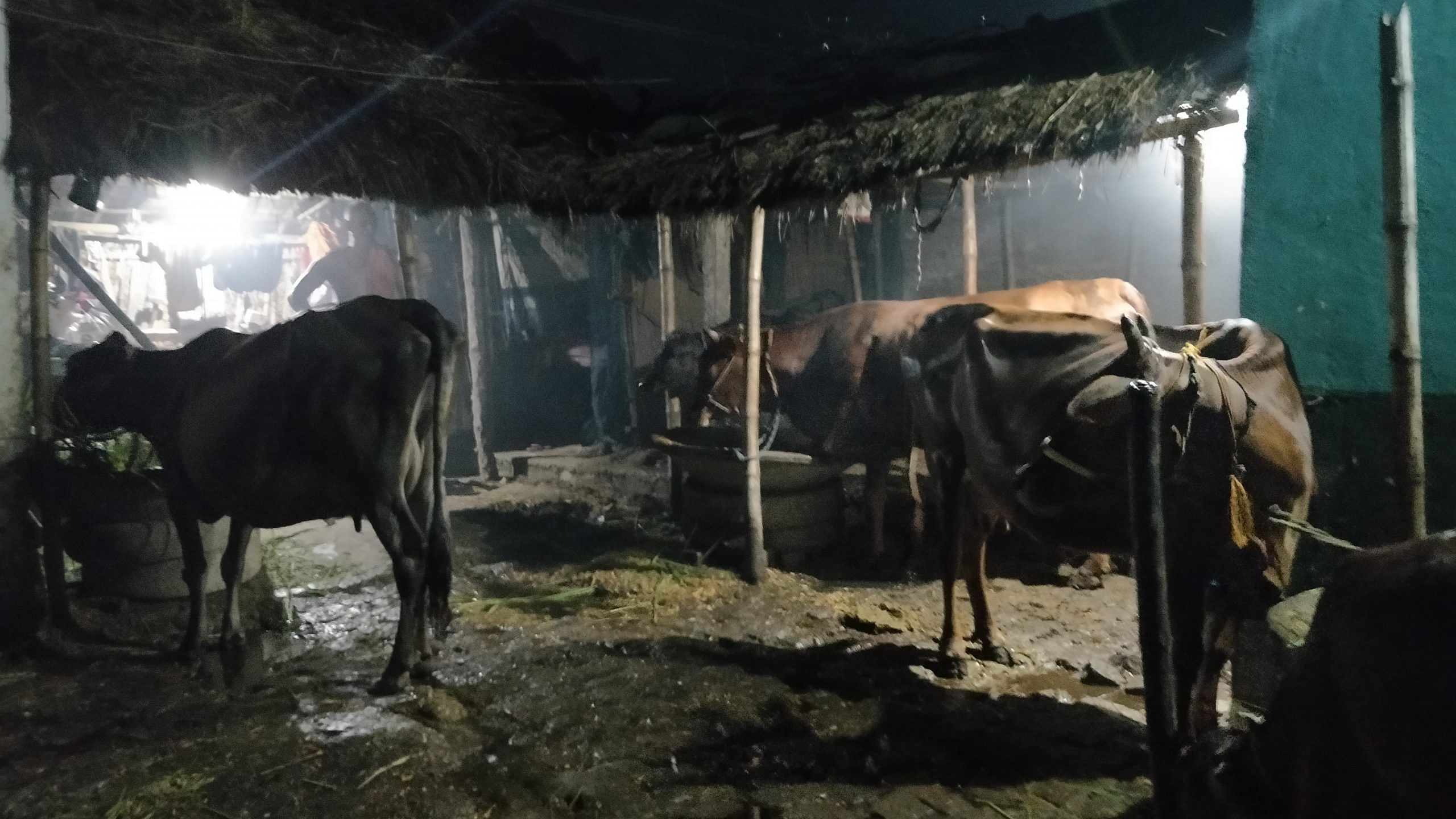
Today, no one in his village questions the need for a taxi service. “They are now praising my efforts,” says Kumar. During the six years that he ran Arya Go, he sold some of its shares to investors and charted out a map to expand it. “But there was no innovation,” Kumar says. He wanted a new challenge. And RodBez was the answer.
Also read: Indian start-ups have laid off 23,000 people since 2020. But here’s why there’s still hope
Driver-partners
Through RodBez, Kumar wants to overhaul the transportation system in Bihar, and then take the model to other parts of India. Frequency and availability of local transport is not good, he says. And that’s where his drivers step in.
He already has 3,000 driver-partners from whom he takes a commission of 20 per cent per ride. And he wants to tie up with an NGO to provide free education to the children of drivers who have succumbed to road accidents across Bihar.
With the network he has built, drivers rarely have to return with empty vehicles. There’s always a passenger looking for a taxi.
Since hitching his wagon to RodBez, 26-year-old Bajrangi Jha’s monthly earning has increased considerably. He was earlier earning Rs 8,000 per month and now he earns an average of Rs 12,000 a month. “No one would have even dreamed that they could call a car to their home from a mobile phone,” says Bajrangi, who is also from Saharsa district.
Their rates are competitive. A 180-km ride from Saharsa to Patna costs Rs 1,999; Patna to Darbhanga (140km) Rs 1,499. Muzaffarpur to Patna ( 75 km and Rs 999) is another in-demand route.
Vikas Kumar, a Patna resident, recently used RodBez’s services for the second time during Chhath Puja. “To go out of Patna, they provide a cab for a reasonable amount of money. My experience was good,” he says.
Start-up ecosystem in Bihar
Bihar has been attempting to rectify its image of a ‘dry’ state in terms of industry and businesses. This year, it came out with a new Start-up Policy to create an independent and transparent ecosystem.
This Chhath Puja, the Nitish Kumar government put out an advertisement in newspapers, inviting people to set up businesses in the state.
What’s more? According to the Ministry of Commerce and Industry;s Startup Ranking 2021, Bihar has been recognised as India’s Emerging Start-up Ecosystem. The state’s Development Commissioner Vivek Singh called upon NRIs to invest in the state.
Bihar's Development Commissioner Sri Vivek Singh called upon the Diaspora to invest in the state. He was addressing a meeting held under #BiharFoundation's initiative "#BiharConnect" that focuses on the theme of "Role of Diaspora in Development".#BiharHaiTaiyar @SandeepPoundrik pic.twitter.com/eDcjQpVpdB
— Bihar Foundation (@biharfoundation) November 3, 2022
“The start-up ecosystem in Bihar is now in a hopeful cycle and by 2030 the state will do big in this field,” says Arvind Jha.
Kumar wants to make the most of this start-up season in Bihar and temper his childhood memories of poverty with success. His family still lives in a one-storey house in Saharsa where his father owns five cows and runs the cattle shelter from where his son Dilkhush began his start-up journey.
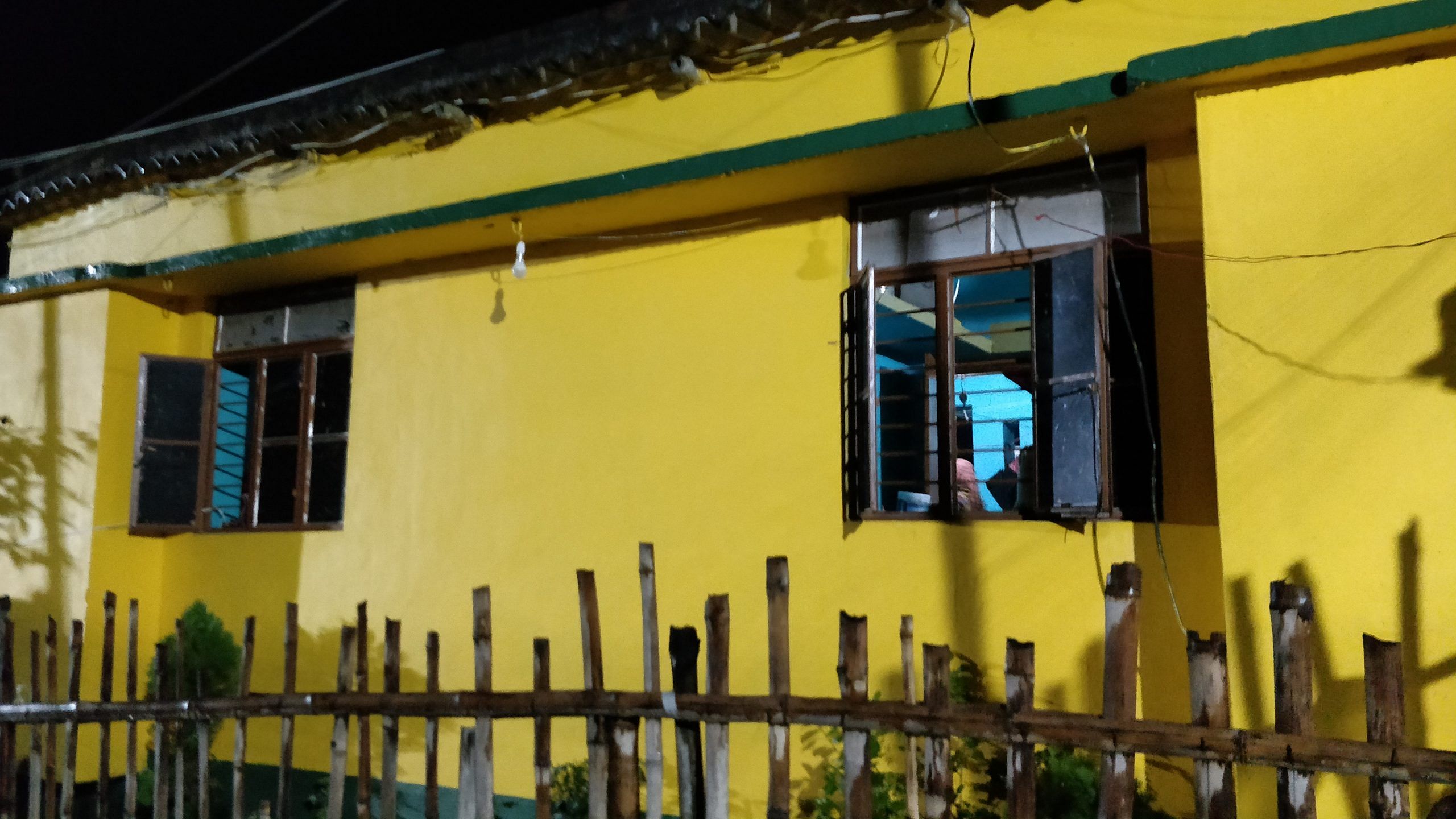
Local media outlets have started reporting on his start-ups, and how he’s providing employment to thousands of people. In 2018, at a founder’s talk online, PM Modi praised his first start-up, Arya Go, he claims.
‘Role model of youth, taxi man becomes icon, Son of Bihar, Son of a driver,’ is how newspapers and portals described him.
The approbation feeds Kumar’s drive for respect and success.
Also read: In Meerut, ‘startup culture’ means hard-to-get loans, low demand, misplaced hope
Road to Delhi
Kumar plans to raise Rs 1.5 crore by selling 14 per cent share of his company but he has some trepidation about the ecosystem.
“Investors do not want to come to Bihar. It is difficult to bring Rs 100-200 crore here. We are also being asked by investors to exit. But we are stubborn people,” he says.
He is inspiring a generation of men and women to launch their own start-ups. “Now, the youth of Bihar have new ideas, creativity, and talent. And Dilkhush is one of them,” says Rachna Priyadarshini, who runs a start-up to promote cultural heritage, monuments and traditions of Bihar.
For now, RodBez is a well-known player in rural Bihar, but Kumar plans to bring it to Delhi. He is currently collaborating with a private carrier to provide taxi services at ‘special prices’.
When Kumar was looking for a job, he was shown an iPhone by the interviewers and asked if he knew the brand. A 20-year-old Kumar couldn’t identify the Apple logo. Perhaps it’s a good thing that he couldn’t. If he had, he would have traded his dreams for a nine-to-five job.
“If I had identified that, then I would not be here today.”
(Edited by Ratan Priya)


